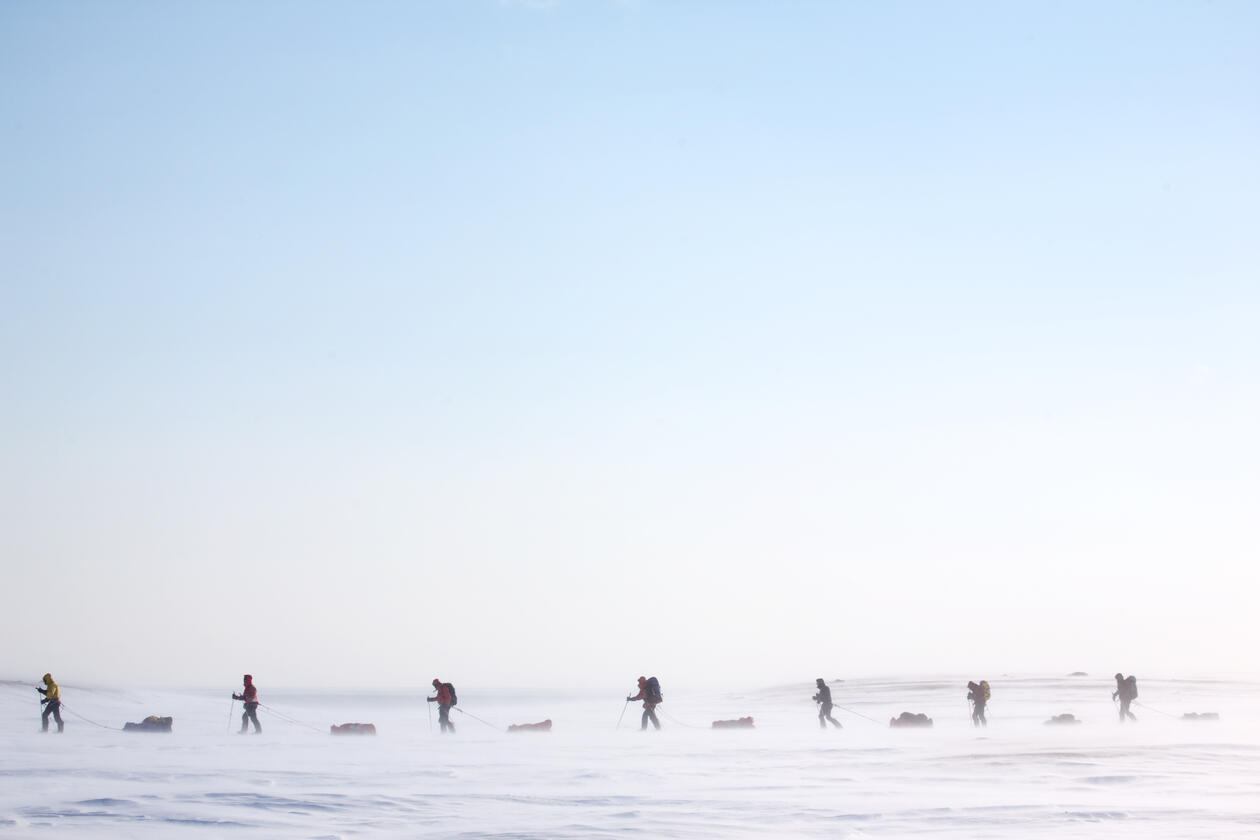Polar expeditions
Main content
Expedition teams to polar regions have maintained a captivating allure throughout history. Many adventurers aspire to replicate the experiences of early polar explorers—venturing to the North Pole without external support, crossing the entirety of the Antarctic continent, or setting new records in speed and distance to reach the North or South Pole. Individuals willingly subject themselves to extreme cold, challenging weather conditions, limited avenues for rescue, isolation, and often intense physical exertion in pursuit of ambitious goals. Countless narratives and personal accounts detail remarkable triumphs and resilience in overcoming dire circumstances and frequently life-threatening challenges. However, a growing body of empirical research, combined with insights from blog posts and diaries, reveals noteworthy differences in experiences and outcomes among individuals and teams. While some encounter positive outcomes and enhanced self-reliance, many share accounts of psychological challenges such as sleep disturbances, diminished cognitive abilities, negative emotions, and interpersonal conflicts. In a series of studies and in cooperation with British researchers, we have aimed to understand the factors contributing to this diversity. Such knowledge may fed into interventions to enhance the well-being and performance of teams operating in extreme and isolated environments for extended durations, including polar regions. For further details on the research, you can explore the links provided below.
https://papers.ssrn.com/sol3/papers.cfm?abstract_id=4220338
https://journals.sagepub.com/doi/full/10.1177/0013916519886367
